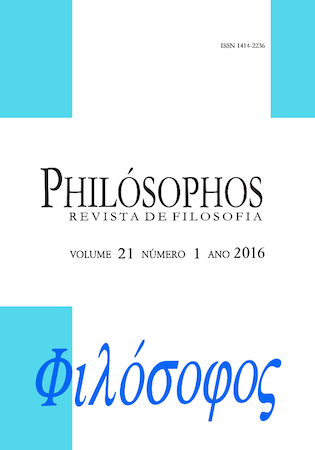THE SENSE OF HUSSERL'S IDEALISM
DOI:
https://doi.org/10.5216/phi.v21i1.37795Keywords:
Idealism, intencional analysis, profiles, constitution.Abstract
This paper addresses the meaning of Husserl’s idealism between the Ideas of 1913 and the Cartesian Meditations of 1931. In the work of 1913, the idealism stems from a distinction between consciousness and world based in a difference in the corresponding modes of giveness: consciousness gives itself absolutely and without profiles, and the world is given as an identity pole of a multiplicity of profiles. The fact that Husserl offered a second definition of his idealism in the same work proves that he thought the first one was not sufficient to ground the kind of idealism he was committed to. According to this second definition, consciousness is an absolute being that nulla res indigent ad existendum, while the world has a relative and contingent being. In 1931 the Cartesian Meditations give the final clue to the understanding of these earlier definitions. Husserls sharply distinguishes his phenomenological idealism from the Berkeleyan and Kantian ones and defines it as a thorough explicitation of the Ego as a constitutive agency, so that the «world that really is» is «the world constituted by consciousness».Downloads
Downloads
Published
How to Cite
Issue
Section
License
Authors who publish in this journal agree to the following terms:
- Authors retain copyright and grant the journal right of first publication, with the work simultaneously licensed under a Creative Commons Attribution License that allows others to share the work with an acknowledgement of the work's authorship and initial publication in this journal.
- Authors are authorized to enter into separate, additional contractual arrangements for the non-exclusive distribution of the journal's published version of the work (e.g., publishing in an institutional repository or as a book chapter), with an acknowledgement of its authorship and initial publication in this journal.















